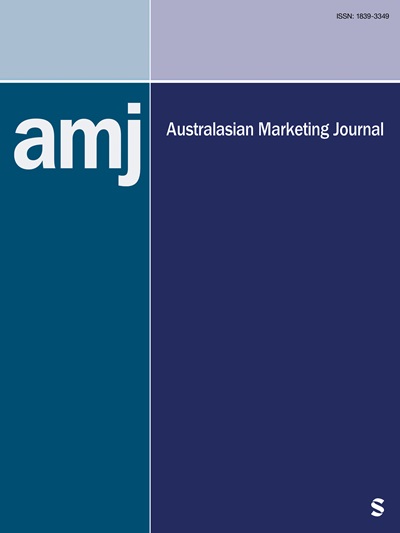营销学院的性别平等:从表演到制度联盟
IF 4
Q2 BUSINESS
引用次数: 6
摘要
几十年来,女性在工作场所的公平待遇(她们在工作中既有机会,也有限制)一直是高等教育议程上的一个议题。然而,制度化的性别限制仍然影响着女性学者的职业生涯,包括市场营销学院的女性学者,导致职业生涯中断或障碍重重,以及女性在高级职位上的代表性不足。此外,体制上对变革的抵制阻碍了性别平等方面的进展,倾向于实干的而不是真正的和变革的体制同盟。我们利用多年来积累的个人经历、回忆和轶事,并结合文献,来研究我们共同职业生涯中系统性的性别限制。我们建议机构联盟是营销学院需要的有意识的努力,以解决系统性和结构性的性别不平等问题,并通过在整个组织决策中整合性别平等的结果来实现二级变革。具体来说,我们建议在澳大利亚和新西兰营销学院(ANZMAC)及其成员大学的性别平等和包容宪章中提名行动作为第一步。本文章由计算机程序翻译,如有差异,请以英文原文为准。
Gender Equity in the Marketing Academy: From Performative to Institutional Allyship
The fair treatment of women in the workplace, where they experience both opportunities and constraints, has been on and off higher education agendas for decades. Yet, institutionalised gendered constraints still shape the careers of female academics, including those in the marketing academy, resulting in disrupted or obstacle-heavy career journeys and the underrepresentation of women in senior positions. Furthermore, progress towards gender equity is hampered by institutional resistance to change, favouring performative rather than genuine and transformational institutional allyship. We draw upon personal experiences, recollections and anecdotes garnered over the years – synthesised with literature – to examine systemic gendered constraints within our collective career span. We propose institutional allyship as the intentional efforts needed by the marketing academy to address systemic and structural gender inequities and achieve second-order change by integrating gender equity outcomes throughout organisational decision-making. Specifically, we suggest nominated actions within a Gender Equity and Inclusion Charter for the Australian and New Zealand Marketing Academy (ANZMAC) and its member universities as a first step.
求助全文
通过发布文献求助,成功后即可免费获取论文全文。
去求助
来源期刊

Australasian Marketing Journal
BUSINESS-
CiteScore
14.90
自引率
16.70%
发文量
25
期刊介绍:
The Australasian Marketing Journal (AMJ) is the official journal of the Australian and New Zealand Marketing Academy (ANZMAC). It is an academic journal for the dissemination of leading studies in marketing, for researchers, students, educators, scholars, and practitioners. The objective of the AMJ is to publish articles that enrich and contribute to the advancement of the discipline and the practice of marketing. Therefore, manuscripts accepted for publication will be theoretically sound, offer significant research findings and insights, and suggest meaningful implications and recommendations. Articles reporting original empirical research should include defensible methodology and findings consistent with rigorous academic standards.
 求助内容:
求助内容: 应助结果提醒方式:
应助结果提醒方式:


